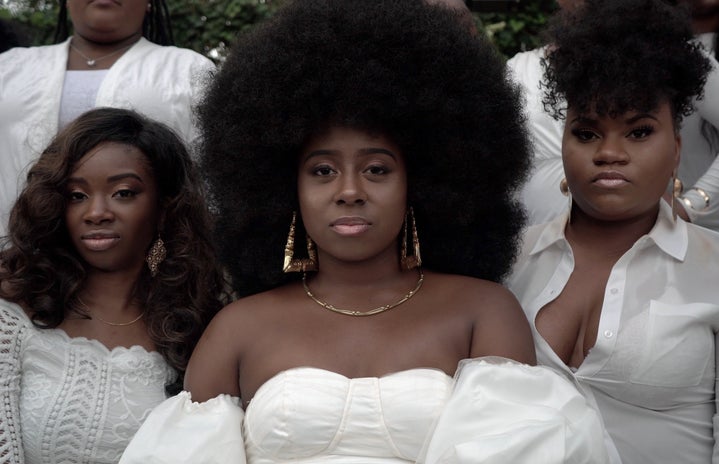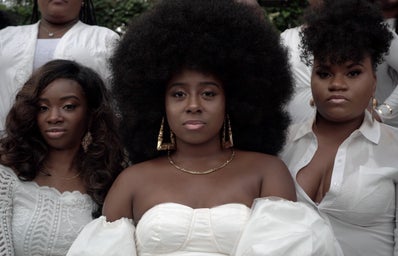Sesali Bowen coined the term “Trap Feminism” 10 years ago while road tripping with a friend. Based on trap culture, which is centered around glorifying men who hustle, trap feminism is a newer framework that bridges the gap between feminism and hip-hop music as it gives a platform to women who have the same experiences as these men. It acknowledges that feminism left out not only Black women but Black women and femmes who love trap music, have unconventional side hustles, sell bundles and lashes on Instagram, and ones who work a 9-5 during the week and twerk at clubs and house parties on the weekends. In her novel Bad Fat Black Girl, Sesali speaks to these girls and says that they are deserving of the same respect as the Michelle Obamas and Elaine Welteroths of the world. Highlighting traits of Black femininity and Blackwomanhood that many people associate with being “ghetto” or “hood”, she acknowledges that “ideal” feminism is moving further away from these traits.
With a heavy-hitting introduction, Sesali acknowledges that Black femininity and Black-girl expression are cool and acceptable until Black women partake in it. She notes that “our style, our language, our expressions, etc.” are taken from us by other communities when they show our creativity and are our modes of survival. She thanks female rap artists, old and new, for inspiring her to coin “trap feminism” as they rap about reclaiming their bodies and speak of men the same way that they have rapped about women for decades. From there she dissects her life experiences and details the lessons that she has learned in each through the lens of a Black girl. She touches on the hypersexualization of young black girls and notes that if we were able to talk about our sexuality without being labeled “fast” or “too grown” then many young girls would’ve been protected from predators and groomers. She calls out the undercover fatphobes that think that commenting “you’re so confident” under a plus-sized women’s post is empowering when she’s simply dancing, trying on clothes, or living life. She tells of the importance of Black sisterhood and having a circle of friends that can relate to the problems that we face on a daily basis. Most importantly, in my opinion, she mentions how often we are gaslit into believing that the more we struggle and de-center ourselves in relationships, the more love we will receive in the end. Through it all, she constantly reminds Black women that we are valuable and desire to prioritize ourselves, our dreams, our desires, and our pleasures. We are more than healers, parents, and martyrs in relationships and we are allowed to have standards and shouldn’t be shamed for saying no to things that don’t align with that. As she puts it, trap feminism “calls on Black women to be aggressively self-interested as a means of self-determination”, and I believe that this is important since for so long we’ve been given the tasks of therapists, healers, and baggage handlers and put other’s lives before our own without receiving anything in return but a high five and a “you’re so strong”.
In her epilogue, Sesali talks about how one of the possible editors of this book believed that it was unrelatable, too specific, and left out people who didn’t have ties to “the hood”. As a Black girl that doesn’t have those ties and had privileges that other Black girls may not have had, her idea was further from the truth. When reading Sesali’s story and exploring parts of her life, I saw myself and was finally able to note that many of my values, behaviors, and ideals are related to my identity as a Black woman. This final chapter is undeniably my favorite because of how beautifully she ties everything together noting that trap feminism is bigger than a theory or curriculum and that it’s a mixture of “integrity, common sense, confidence, empathy, courage, and resilience”, things that can’t be taught from a textbook. As I continue to read and explore what Black femininity means to me, I’ll take pieces of trap feminism with me as it points to the realness and rawness of Blackwomanhood.


